There was ‘no way’ Sheikh Hasina govt. in Bangladesh would have survived: Analyst
By Press TV Website Staff
There was “absolutely no way” that the ruling government in Bangladesh would have survived, says a Bangladeshi academic, after Prime Minister Sheikh Hasina resigned and fled the country on Monday.
In an interview with the Press TV website, Mushfiq Mobarak, Professor of Economics at Yale University, US, commented on weeks of anti-government protests in the South Asian country.
Sheikh Hasina reportedly tendered her resignation on Monday and left the capital Dhaka amid violent protests with many demonstrators storming her official residence to demand her resignation.
According to Bangladeshi media, hundreds of thousands of protesters, mostly youth, defied the curfew and took to the streets on Monday a day after nearly 100 people were killed in fresh violence.
In a televised address, Bangladeshi army chief Waker-Uz-Zaman said the 76-year-old premier and leader of the Awami League party had left the country and an interim government would be formed.
“The country has suffered a lot, the economy has been hit, many people have been killed – it is time to stop the violence,” Zaman said. “I hope after my speech, the situation will improve.”
Mobarak, who has been closely following the developments in Bangladesh in recent weeks, said the government led by Sheikh Hasina had little chance to survive amid simmering countrywide protests.
“They killed protesting students they murdered children and students in cold blood, hundreds of them. There was no other possible solution other than for them to leave,” he told the Press TV website.
Press TV’s journalist on the Subcontinent Desk shares latest developments in Bangladesh following resignation of country’s prime minister pic.twitter.com/RVd0VyrVm3
— Press TV 🔻 (@PressTV) August 5, 2024
On what lies ahead, Mobarak, who serves as the faculty director of the Yale Research Initiative on Innovation and Scale (Y-RISE), said it is difficult to predict what happens next in the country.
“The reason it is difficult to predict what will happen next is that this was truly a student-led protest and it was organic,” he stated, referring to the weeks-long protests that were led by students.
“There wasn't any clearly identified leader. It's not like any political party led the activities. In fact the opposition parties repeatedly failed to do what a bunch of 21-year-old students - both boys and girls - achieve by themselves.”
Echoing what the country’s army chief said in his televised address, Mobarak said his guess is that there will be a caretaker government that will take over from the government led by Hasina.
“My best guess is that there will be a caretaker government supported by the military for the next few months. And that they will have to call a new election during the caretaker government period.”
The popular countrywide protests in Bangladesh began last month against job quotas that eventually spiraled into violent clashes claiming the lives of at least 300 people in recent weeks.
The protesters had earlier dismissed the invitation for dialogue from the 76-year-old Bangladeshi leader and instead renewed calls for nationwide protests against the embattled premier.
After the resignation of Hasina on Monday, videos circulating online showed thousands of people taking to the streets of Dhaka in jubilation, chanting slogans and displaying victory signs.
Protesters were also seen climbing atop a large statue of Bangladesh's independence leader and Hasina's father Sheikh Mujibur Rahman, Hasina's father, in the capital Dhaka.
Hasina was accused by her critics, human rights groups and political opponents of using excessive force against anti-government protesters, a charge she repeatedly denied.
She said those indulging in violent protests were not students but "terrorists" who wanted to destabilize the country, blaming the opposition.
Hasina was reelected as the prime minister for the fourth straight term in January after her party and its allies bagged 225 of 300 parliamentary seats contested.
The country's main opposition party, Bangladesh Nationalist Party, had boycotted the poll.
Israel finalizes execution plans for Palestinian abductees after Knesset vote: Report
VIDEO | Press TV's news headlines
VIDEO | Pakistan mosque attack in Islamabad sparks protests in Kashmir, Kargil
Hamas condemns Israel's 'fascist settler-colonial' project aimed at annexing West Bank
Iran's Greco-Roman wrestling team wins championship title at Zagreb Open 2026
VIDEO | UK arrests Press TV contributor amid crackdown on pro-Palestine activism
VIDEO | Axis of Resistance stands as multinational front for justice
Swiss academics call for end to research treaty with Israel over Gaza genocide


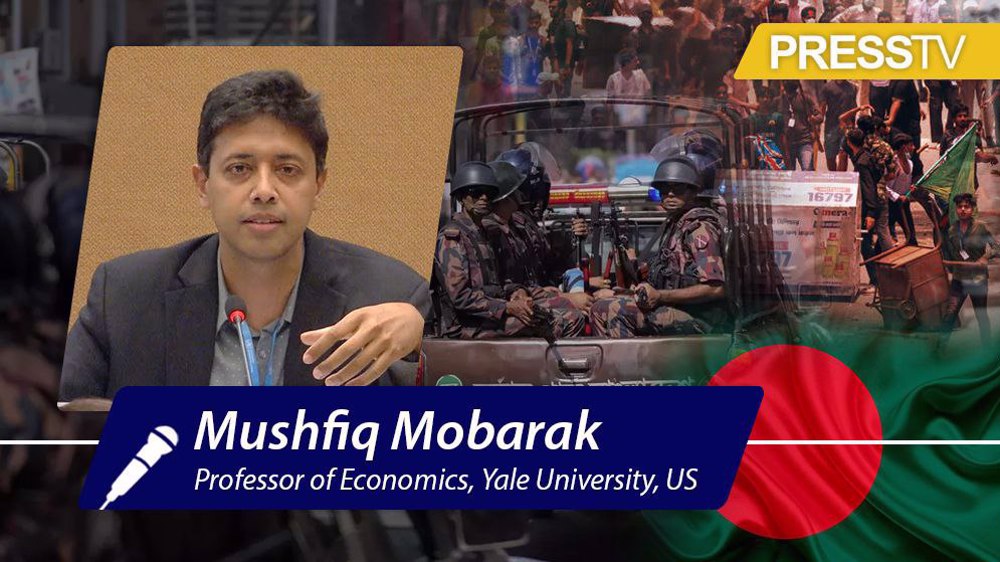
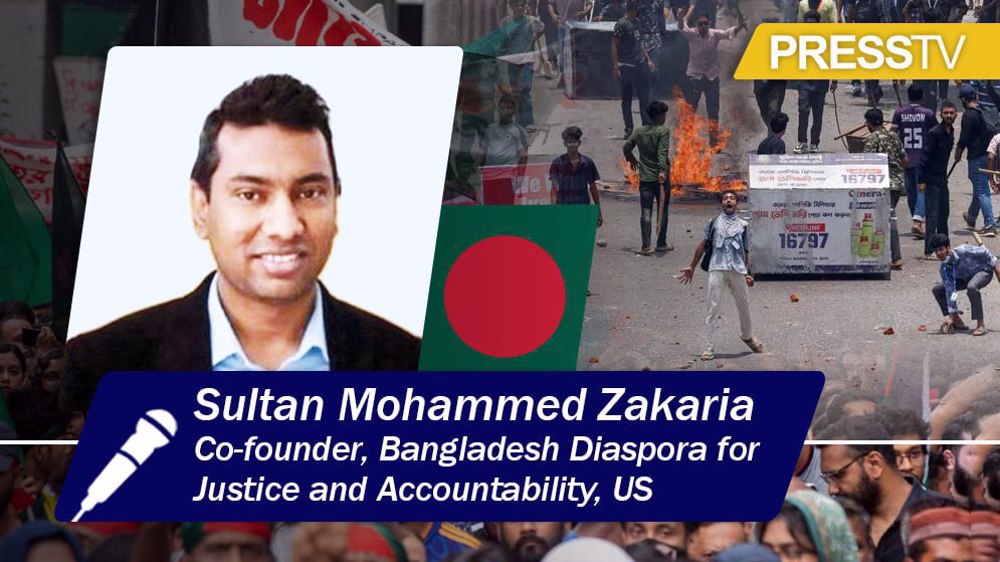
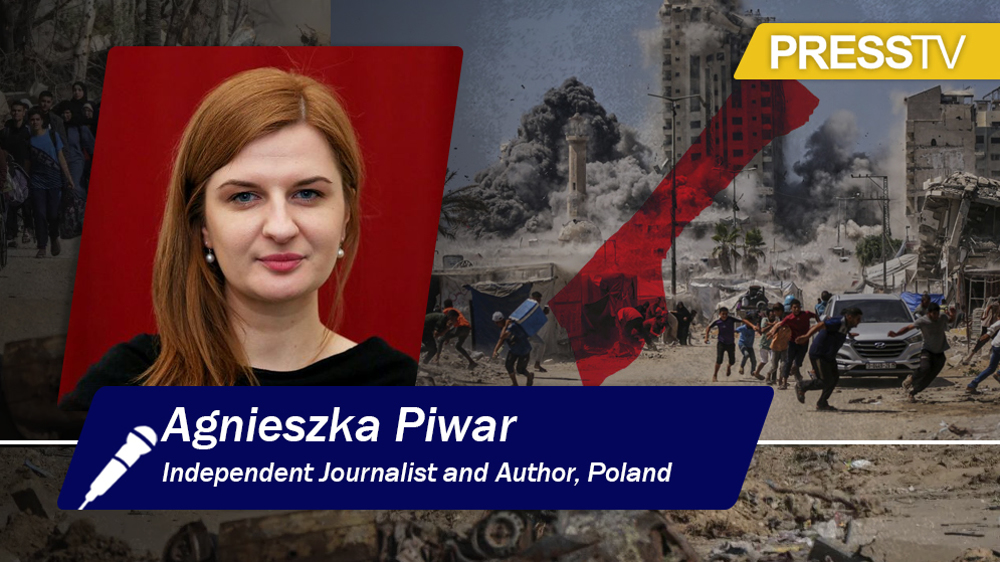





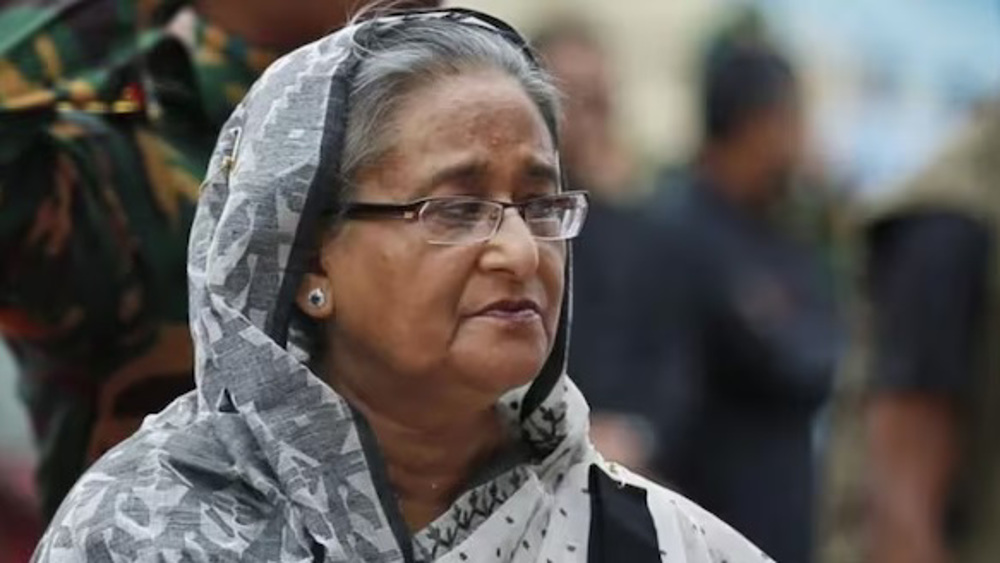
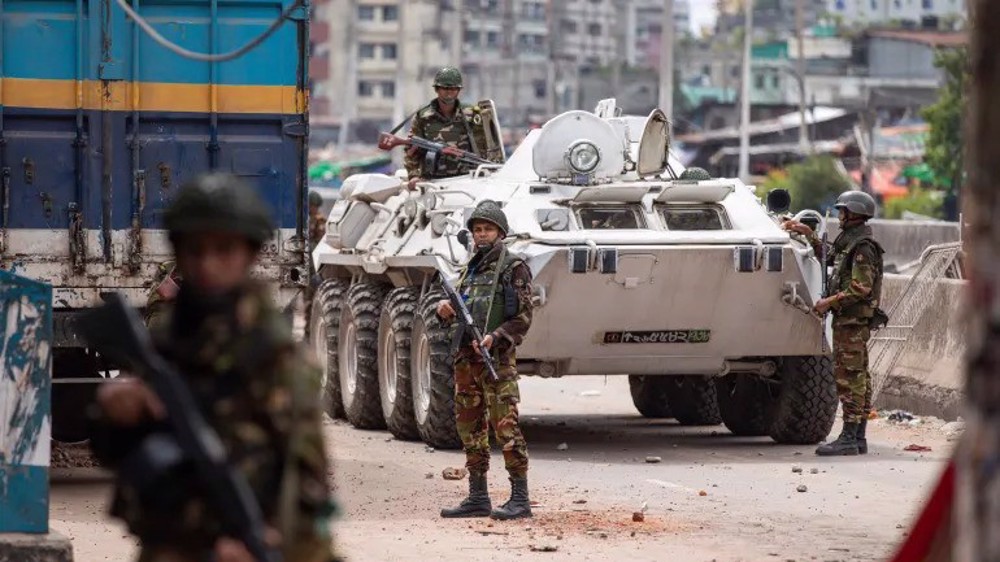
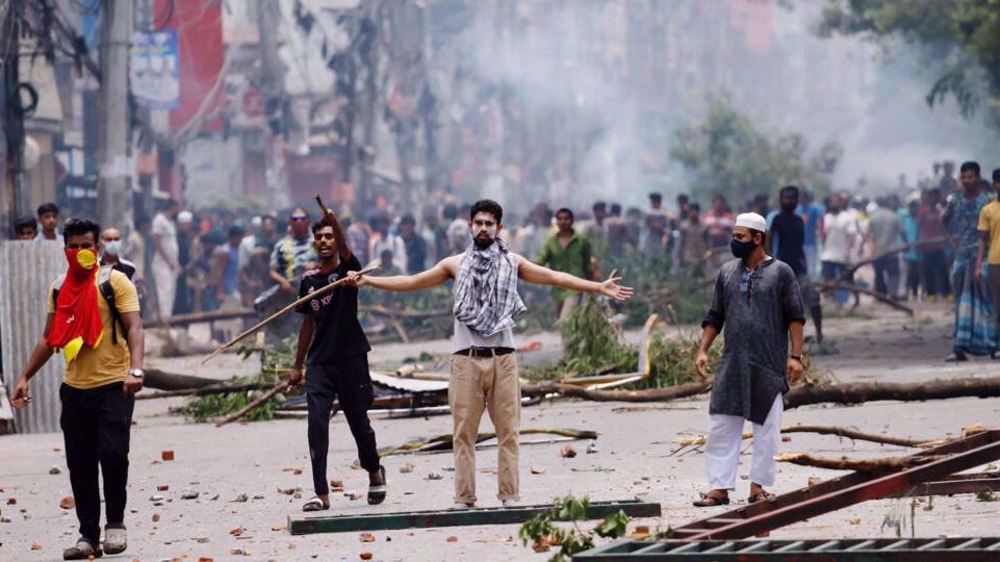
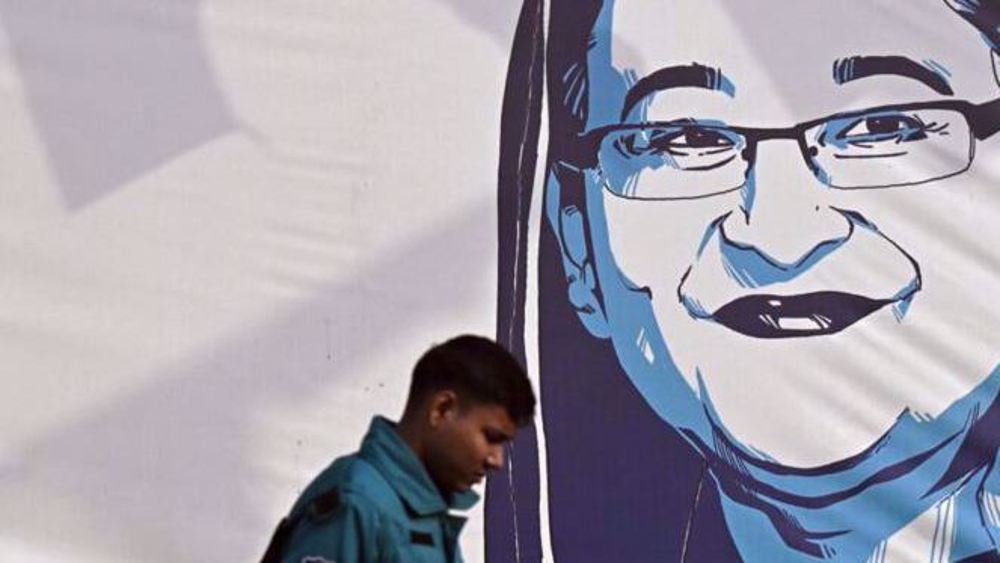
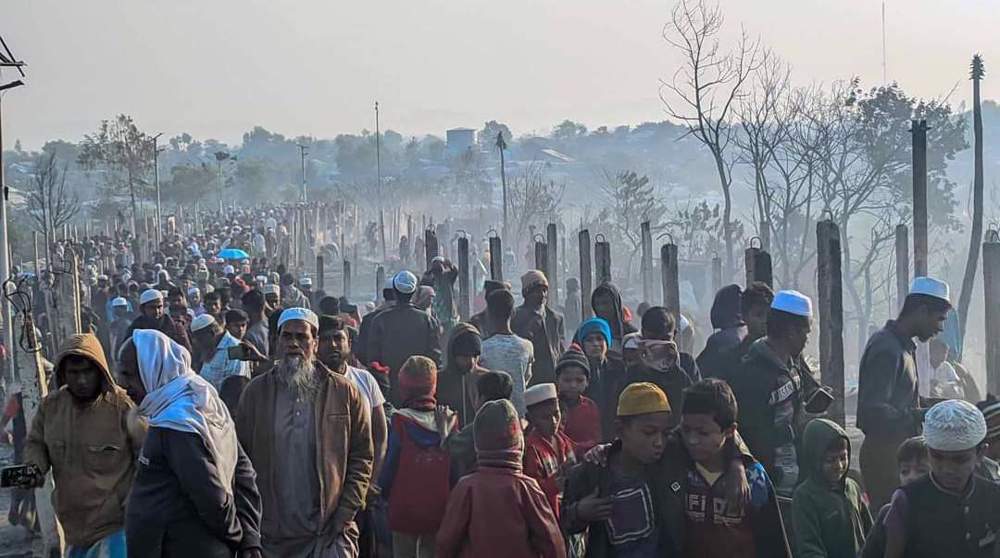

 This makes it easy to access the Press TV website
This makes it easy to access the Press TV website